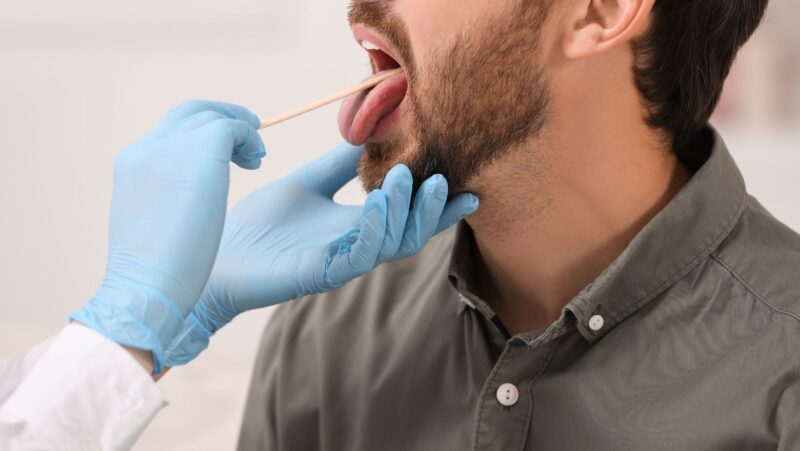
Drug and alcohol interactions are highly critical to public health, considering that they involve prevalence and potential risks accompanied by these combinations. According to the National Institute on Alcohol Abuse and Alcoholism, nearly half of all liver disease deaths involve alcohol. Additionally, an estimated 25% of emergency room visits related to drug misuse involve alcohol, hence emphasizing the critical need for awareness about these interactions, according to the National Institutes of Health. Understanding these interactions is crucial for preventing severe health consequences. This article will shed light on how mixing alcohol with various drugs can impact your health by highlighting specific medications and their associated risks.
What Happens When You Mix Alcohol with Drugs?
When alcohol is mixed with drugs, it can lead to a range of interactions that affect the body’s ability to metabolize either substance effectively. These interactions can amplify the effects of the drugs, leading to increased side effects and potential harm. Common drug classes that interact with alcohol include sedatives, pain medications, antidepressants, and blood pressure medications. Each of these combinations can result in unique and sometimes dangerous effects.
Alcohol can interfere with the metabolism of many medications, either increasing their potency or decreasing their effectiveness. For example, alcohol can enhance the sedative effects of drugs, leading to excessive drowsiness and impaired motor function. Additionally, alcohol can compete with drugs for metabolism in the liver, leading to higher levels of the drug in the bloodstream and an increased risk of side effects.
Side Effects of Drug And Alcohol Interactions
There can be a whole set of side effects arising from such a mix, going from the lightest to the most serious. The common ones can range from drowsiness to dizziness, which can impede your competence in performing daily chores safely. More serious conditions from the drug and alcohol interactions may include liver damage and depression of respiration, both of which could be fatal.
Common Side Effects: The two most common side effects that arise from mixing alcohol with medications are drowsiness and increased dizziness. The reasons for being inoperable while driving or working with heavy machinery under the influence of medications, accompanied by the use of alcohol, make for a very dangerous combination.
Severe Outcomes: The most serious interactions may lead to liver damage, especially if the medications that need to be metabolized by the liver are being taken. Another severe consequence is respiratory depression, especially if it happens to be a sedative or opioid medication that is mixed with alcohol.
Therefore, this knowledge of possible side effects is necessary in one’s daily use to avoid hazardous combinations. If one is on medications, then it is always important to consult a healthcare provider before using alcohol.
High Blood Pressure Medication and Alcohol
Drinking alcohol with medications for high blood pressure can have serious side effects. The effectiveness of high blood pressure medications can be affected by alcohol, making them not work at their full potential. This could lead to high blood pressure out of control and an increased risk of heart disease, stroke, or other cardiovascular events. In addition, alcohol would increase the side effects of the medications, which can be dangerous.
The alcohol itself, in conjunction with high blood pressure medications, may alter the body’s metabolism and response to it. This leads to either an excessive lowering of blood pressure or an insufficient one and in both scenarios, it is harmful. The exact interaction of specific high blood pressure medications and alcohol is important for patients to know to manage the condition safely and effectively.
Verapamil
Verapamil, a calcium channel blocker, is used to treat high blood pressure. Its interaction with alcohol increases drowsiness and dizziness. The sedative effect of this combination can impair both mental and motor functions, posing a danger while driving or doing other similar activities.
Propranolol
Propranolol, a beta-blocker used to treat high blood pressure, can have its effects accentuated by alcohol, causing blood pressure to drop too much, hence leading to dizziness, fatigue, and feeling of faintness. Additionally, alcohol can prolong the effects of propranolol and increase the side effects, which affect judgment and coordination.
Lisinopril
Lisinopril is an ACE inhibitor used to treat high blood pressure. Its action could be affected by alcohol, increasing the action of lowering blood pressure. This can cause symptoms such as dizziness, lightheadedness, and fainting, which especially take place when one changes position. Alcohol and lisinopril can also increase dehydration, thus further affecting blood pressure and kidney health.
Understanding the interactions between alcohol and high blood pressure medications, such as verapamil, propranolol, and lisinopril, is very important for the proper management of blood pressure and the prevention of dangerous health outcomes. It would be necessary to consult a healthcare provider about the safe consumption of alcohol while using such medications in order to ensure safety and optimal treatment outcomes.
Pain Medications and Alcohol
Particularly worrisome is the combination of alcohol with medications for the alleviation of pain, particularly opioid painkillers. Opioid painkillers, like oxycodone and hydrocodone, can act by depressing the respiratory system. Taking them together with alcohol can increase the risk of depression in respiration and overdose.
Alcohol increases the sedative effect of opioid painkiller medications, putting an individual into deep drowsiness, impaired motor function, and slowed breathing. This combination can be lethal, as it may lead to respiratory depression, hypoxia, damage to the brain, or death.

Moreover, alcohol significantly hampers judgment and coordination and may lead to accidents or injuries. Avoid alcohol with opioid painkillers to prevent these serious risks and ensure safety while using the drug.
Antidepressants and Alcohol
Alcohol and antidepressants can enhance the side effects and risks involved in these drugs. Antidepressants can heighten the sedative properties of alcohol, making drowsiness dizziness, and other psychomotor impairments, more intensified. Besides, alcohol can enhance the symptoms of depression and anxiety, which worsens the effectiveness of the drug.
Alcohol can also interfere with the metabolic process of antidepressants by allowing the drug to stay more inside the bloodstream. This can increase the risk of side effects, such as nausea, vomiting, and headaches. The combination of antidepressants and alcohol can also bring devastating effects on mental health. The patient is at an increased risk of experiencing worsened depression or anxiety symptoms. Additionally, the therapeutic benefits of antidepressants are also seriously compromised by alcohol consumption. Therefore, the patient may find it very difficult to achieve stable mental health. In short, abstinence from alcohol is extremely essential for achieving the desired benefits of antidepressants and reducing the risks associated with the drug.
Herbal Medicines and Alcohol
Herbal remedies and over-the-counter medicines can also interact with alcohol and lead to unforeseen side effects. Certain herbal medicines like St. John’s Wort may interact with alcohol to cause increased drowsiness and dizziness. The other herbal remedies affect the liver and increase the risk of liver damage when the patient consumes alcohol along with such medicines.
It is therefore imperative to seek advice from a health provider before one consumes alcohol along with any over-the-counter medicines or herbal medicines. They may be natural products, but even then, they are very powerful and can interact with alcohol in very harmful ways. Understanding the drug-alcohol interaction will help prevent adverse outcomes and ensure that the patient uses both alcohol and herbal medicines quite safely.
Conclusion
Understanding the interaction of drugs and alcohol is important for health maintenance and prevention of adverse effects. The combination of alcohol with several medications increases side effects, reduces their efficacy, and exposes one to severe health risks. In all cases, before consuming alcohol, contact your health provider for assistance if you are on any medications. Awareness and proper management of these interactions can increase your safety and well-being to a much greater extent.












